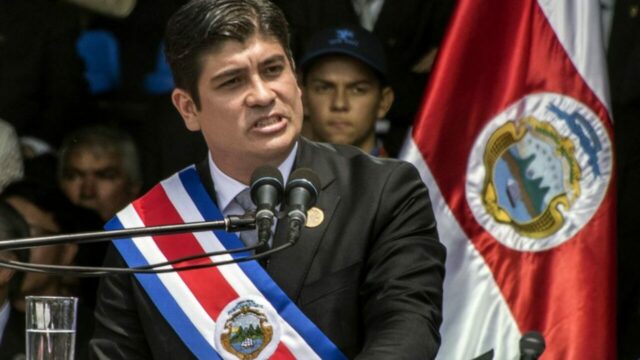
Despite the upturn in infections, which reach around 70,000 cases and 800 deaths, the president of Costa Rica, Carlos Alvarado, ruled out for the moment returning to the severe restrictions that allowed the Coronavirus to be controlled between March and June.
“We have the technical options on the table, but we found that at this moment there are factors that have to do with the fatigue of the public with the closure measures that make them not necessarily the most effective,” he said.
Instead, Costa Rican health authorities are betting on community service. It consists of that health agents go to areas where sources of contagion are detected to try to contain them.
“We cannot ask people to stay at home because they have to go out to work, others have to look for work. So we need people to take care of themselves”, insisted President Alvarado.
Inequality
Alvarado warned that inequalities between rich and emerging countries are widening as a result of the COVID-19 pandemic, which threatens to impact democracies, trade, and migration.
He stressed that the most developed economies, such as the United States and Europe, have recovered more from the impact of the Pandemic than those of Latin America and Africa, “and that is going to widen an unequal situation in the world.”
“As we live in such a connected world, the impacts on poor economies are going to be reflected in the more developed world. Trade and tourism are going to be reduced, and as poor and middle-income countries are more affected, there will be more migrant populations”, he predicted. He also noted that key issues on the global agenda, such as the fight against climate change, “will lose momentum”
On this issue, the Costa Rican president proposed, at the UN General Assembly, the creation of a 516,000 million dollars fund from contributions of developed countries to help emerging nations to face the impact of the Pandemic.
“We are proposing to rich countries that generate 80% of global GDP each contribute 0.7% of their GDP to this fund, which is not a new institution, but would be channeled through existing institutions and lend to countries the equivalent of 3% of their GDP,” explained President Alvarado.

